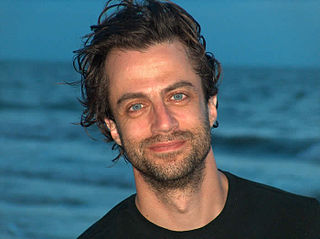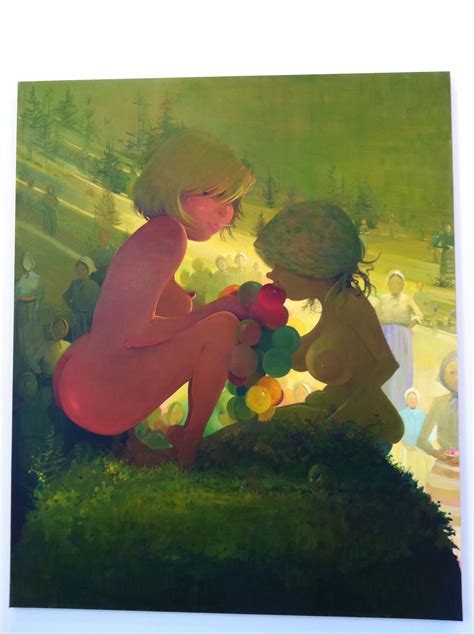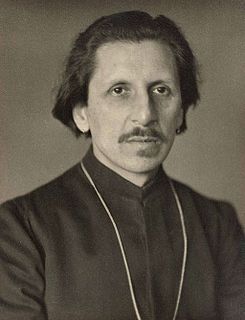A Quote by Johann Wolfgang von Goethe
Art is in itself noble; that is why the artist has no fear of what is common. This, indeed, is already ennobled when he takes it up.
Related Quotes
The need to be a great artist makes it hard to be an artist. The need to produce a great work of art makes it hard to produce any art at all. . . Fear is what blocks an artist. The fear of not being good enough. The fear of not finishing. The fear of failure and of success. The fear of beginning at all.
The truth is, anyone who puts so much of herself and her life into art as you do must naturally fear any failure in that art as a potential threat to your life. And so you protect your art more than you protect your health or the common forms of happiness the rest of us have. And you probably have this in common with every artist you admire.
Fine art, that exists for itself alone, is art in a final state of impotence. If nobody, including the artist, acknowledges art as a means of knowing the world, then art is relegated to a kind of rumpus room of the mind and the irresponsibility of the artist and the irrelevance of art to actual living becomes part and parcel of the practice of art.
Art is frightening. Art isn't pretty. Art isn't painting. Art isn't something you hang on the wall. Art is what we do when we're truly alive. An artist is someone who uses bravery, insight, creativity, and boldness to challenge the status quo. And an artist takes it (all of it, the work, the process, the feedback from those we seek to connect with) personally.
If being an anti-art artist is difficult, being an anti-art art historian is a hard position indeed. His doctrinal revolutionism brings forth nothing new in art but reenacts upheavals on the symbolic plane of language. It provides the consoling belief that overthrows are occurring as in the past, that barriers to creation are being surmounted, and that art is pursuing a radical purpose, even if it is only the purpose of doing away with itself.
Exhibitions of minority art are often intended to make the minority itself more aware of its collective experience. Reinforcing the common memory of miseries and triumphs will, it is expected, strengthen the unity of the group and its determination to achieve a better future. But emphasizing shared experience as opposed to the artist's consciousness of self (which includes his personal and unshared experience of masterpieces) brings to the fore the tension in the individual artist between being an artist and being a minority artist.
Some people flinch when you talk about art in the context of the needs of society thinking you are introducing something far too common for a discussion of art. Why should art have a purpose and a use? Art shouldn't be concerned with purpose and reason and need, they say. These are improper. But from the very beginning, it seems to me, stories have indeed been meant to be enjoyed, to appeal to that part of us which enjoys good form and good shape and good sound.
As Buddhists, statues are more than simply pieces of stone to us. We believe the statue of the Buddha has a kind of soul and is the Buddha in some sense. This is why we can pray to it. Clay is a very interesting and fundamental material - it's earth, it's water and - with fire - it takes on form and life. In fact, what is art? Art is giving to what you create a soul. That's why it is said God is like an artist.
I decided honestly that comic art is an art form in itself. It reflects the life and times more accurately and actually is more artistic than magazine illustration - since it is entirely creative. An illustrator works with camera and models; a comic artist begins with a white sheet of paper and dreams up his own business - he is playwright, director, editor and artist at once.





































